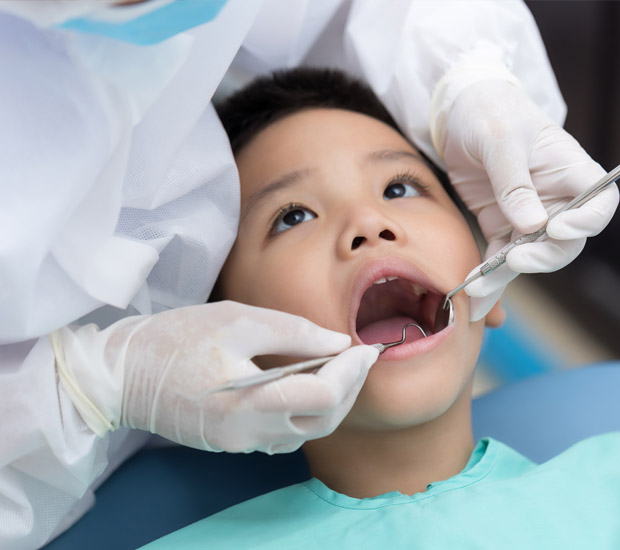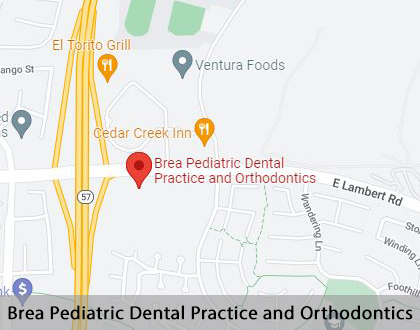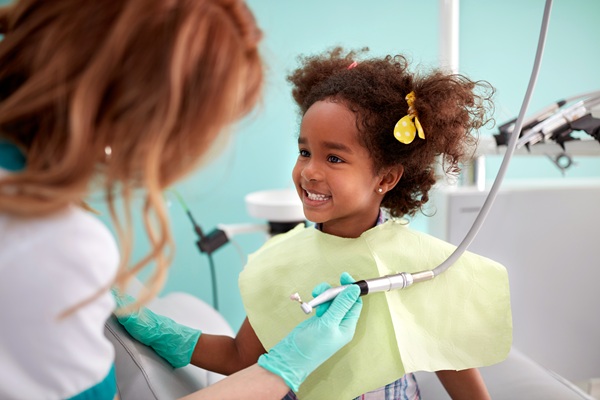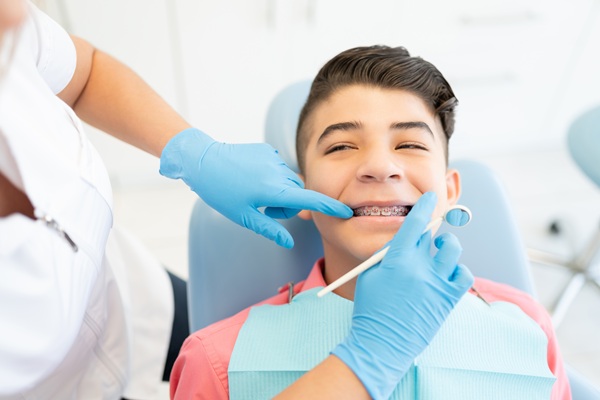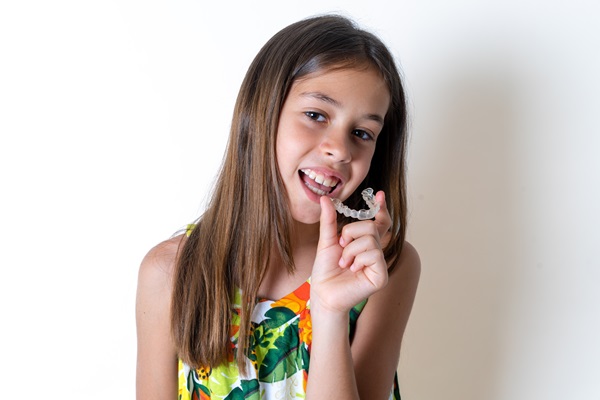What Should I Do If I My Child Chips a Tooth Brea, CA
Chipped teeth can happen due to many reasons. It can happen after trauma to the face or something as simple as crunching on a piece of ice. It is natural for this to send someone into a panic. Fortunately, there are many ways to repair a chipped tooth.
Chipped teeth treatment is available at Brea Pediatric Dental Practice and Orthodontics in Brea and the surrounding area. If left untreated, a chipped tooth can lead to severe complications. Call us today at (714) 782-0215 to schedule an appointment or learn more about our services.
Keep Calm
Chipped teeth are one of the most common types of dental injuries. Though it is only natural for patients to start panicking once they realize they have chipped a tooth, it is essential to stay calm to maximize the chances of saving the tooth. Otherwise, matters may only get worse. Take a deep breath to keep a cool head and, if possible, try to save the broken tooth.
Rinsing the mouth with warm water can help remove any food particles stuck in the jagged edges of a cracked tooth. A gentle mouthwash can also help keep things clean, which is especially important when the pulp is exposed. Children should see a dentist immediately. In the meantime, any pain should be addressed with over-the-counter painkillers.
“Chipped teeth are one of the most common types of dental injuries.”
Immediate Steps
It is crucial to call a dentist as soon as one has realized their child has chipped their tooth. If left untreated, a chipped tooth may lead to severe complications, such as an infection, abscess, or nerve damage. In the meantime, rinse the child’s mouth with warm water before applying pressure with a piece of gauze to help prevent any bleeding in the mouth.
If it is not possible for the child to see a pediatric dentist on the same day they chip their tooth, they should take care to cover the chipped tooth with dental cement, dental wax, temporary dental filling material, a teabag, or sugar-free gum to protect the tongue and gums. After treatment, patients should remain vigilant in their oral hygiene routine and use a toothpaste designed for sensitive teeth.
“If left untreated, a chipped tooth may lead to severe complications, such as an infection, abscess, or nerve damage.”
Chipped Teeth in Children
Chipped teeth are common in patients of all ages, but they are especially prevalent in children. There are also different concerns regarding chipped teeth in children than in adults. Treatment is dependent on the patient's age and the severity of the injury.
The primary concern for treating chipped teeth in children is preventing damage to the underlying permanent tooth. Contrary to popular belief, baby teeth require just as much care as permanent teeth. This is due to the fact that they effectively act as placeholders for the incoming teeth. A child's tooth is not fully developed and requires immediate attention after injury.
“Chipped teeth are common in patients of all ages, but they are especially prevalent with children.”
Check out what others are saying about our dental services on Yelp: What Should I Do If I My Child Chips a Tooth in Brea, CA
Treating a Chipped Tooth
Treatment for a chipped tooth is dependent on the location, type of crack, and extent of the injury. Patients who are able to preserve the part of the tooth that has broken off may be eligible for tooth reattachment. Other patients with just minor chips may be able to be treated with a dental filling or bonding.
A dental cap or crown can treat a tooth with a larger chip or larger areas of decay. Dental veneers can restore the appearance of a broken or chipped tooth, while a root canal treatment may be necessary for chips or breaks large enough to expose the tooth's pulp. Finally, a chipped tooth that is beyond repair will require tooth extraction and replacement. After treatment, patients should brush with toothpaste formulated for sensitive teeth and maintain their oral hygiene.
“Treatment for a chipped tooth is dependent on the location, type of crack, and extent of the injury.”
Questions Answered on This Page
Q. How common are chipped teeth?
Q. What should I do immediately after chipping my tooth?
Q. What is the difference between chipped teeth in children and chipped teeth in adults?
Q. What are the different types of treatments for a chipped tooth?
Maintenance for a Treated Chipped Tooth
Once patients have their chipped tooth treated, it is essential for them to maintain a consistent oral hygiene routine. They should be brushing twice daily and flossing once nightly. Brea Pediatric Dental Practice and Orthodontics may also provide patients with post-treatment care instructions, depending on the procedure.
Prevention is also key when it comes to maintenance care. Patients should avoid biting down on the treated tooth, and they should especially refrain from chewing on anything that is too hard. To maintain good overall health, patients should make regular visits to the dentist at least twice yearly. Some patients may require more frequent checkups, depending on their needs. Brea Pediatric Dental Practice and Orthodontics can give a better idea of what to expect during a one-on-one consultation.
“Once patients have their chipped tooth treated, it is essential for them to maintain a consistent oral hygiene routine.”
Frequently Asked Questions About Chipped Teeth
Q. What are the main causes of chipping a tooth?
A. The most common cause of a chipped tooth is biting down on hard substances, especially in children with weak teeth. Other common causes are falls and car accidents, playing sports without a mouthguard, or grinding while sleeping.
Q. Is it common to chip a tooth?
A. Although enamel is the hardest tissue in the human body, the teeth are the most subjected to wear and tear. Also, the teeth are the most visible part of the face, resulting in direct impact in many injuries. It is crucial for a chipped tooth to receive immediate treatment and prevent further complications.
Q. How can a chipped tooth be treated?
A. If the chipped tooth only removed a small amount of outer enamel, a dentist would be able to treat it with a normal filling. However, if the patient saved the chipped portion of the tooth, it is sometimes possible to re-attach it to the tooth. If it was not saved, dental bonding is the most likely treatment.
Q. What will happen to an untreated chipped tooth?
A. Even when a chipped tooth does not hurt, it should never be left untreated. An untreated chip allows harmful bacteria to enter through the tooth, causing a plethora of other complications. It may compromise the entire tooth over time or lead to bad infections in the gums and bone.
Q. How can I prevent my children’s teeth from chipping?
A. Chipped teeth can happen to anyone, but it is most common in children. We highly recommend that children have a mouthguard, especially those who play sports or are highly active. Dental sealants are also a good idea to protect young children’s teeth as they develop from risk of injury or wear and tear.
Start Feeling Better – Visit Us Today
By visiting us as soon as possible, our team can help get you the professional treatment you need. Instead of waiting around and allowing the symptoms to get worse, we can provide you with treatment options.
Definitions
Call Us Today
A chipped tooth almost always requires medical attention. We at Brea Pediatric Dental Practice and Orthodontics can help. Call us today at 714-782-0215 to schedule an appointment or learn more about our services.
Helpful Related Links
- American Dental Association (ADA). Glossary of Dental Terms. Year
About our business and website security
- Brea Pediatric Dental Practice and Orthodontics was established in 2008.
- We accept the following payment methods: Cash, Check, Discover, MasterCard, and Visa
- We serve patients from the following counties: Orange County, San Bernardino County and Los Angeles County
- We serve patients from the following cities: Brea, Yorba Linda, Placentia, Fullerton, La Habra, Whittier, Anaheim, Chino, Diamond Bar, and Rowland Heights
- Norton Safe Web. View Details
- Trend Micro Site Safety Center. View Details
Back to top of What Should I Do If I My Child Chips a Tooth
